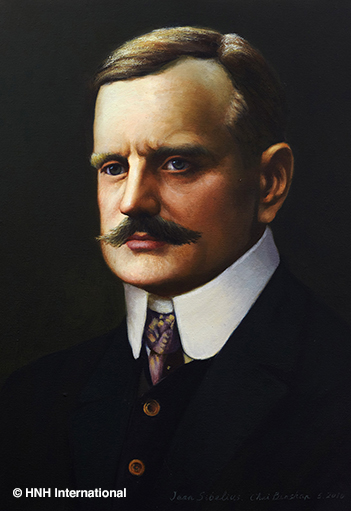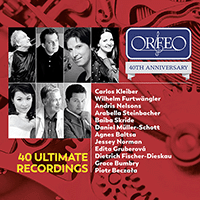
Jean Sibelius (1865 - 1957)
Jean Sibelius grew to maturity at a time of fervent Finnish nationalism, as the country broke away from its earlier Swedish and later Russian overlords. Brought up in a Swedish-speaking family, Sibelius acquired a knowledge of Finnish language and traditional literature at school; early Finnish sagas proved a strong influence on his subsequent work as a composer. After early training in Helsinki and later in Berlin, he made his career in Finland, where he was awarded a state pension. Although he lived until 1957, he wrote little after 1926, feeling out of sympathy with current trends in music.
Stage Works
Sibelius wrote incidental music for Maeterlinck’s Pelléas et Mélisande, Procopé’s Belshazzar’s Feast and Shakespeare’s The Tempest. His well-known Karelia Suite was derived from incidental music for a pageant. His popular Valse triste was originally written for Järnefelt’s play Death to accompany a deathbed scene.
Orchestral Music
Symphonies
Sibelius wrote seven symphonies, an additional eighth apparently completed but destroyed. The first two of these enjoy particular popularity.
Symphonic Poems etc.
Symphonic poems by Sibelius, their inspiration usually from ancient Finnish legend, include En saga, the Lemminkäinen Suite, of which ‘The Swan of Tuonela’ and ‘Lemminkäinen’s Return’ form a part, Pohjola’s Daughter and Tapiola. Finlandia was adapted from music provided for Press Pension celebrations in 1899.
Concertos
Sibelius was trained as a violinist. His Concerto for the instrument was, however, a technically more demanding work than he could have tackled himself. Sibelius made a revised version, which now has a place in standard solo violin repertoire and still makes considerable demands on the performer.
Chamber Music
Chamber music by Sibelius includes the String Quartet ‘Voces intimae’, a Sonatina for violin, and a number of short pieces for violin and piano.
Piano Music
Although the musical achievement of Sibelius may be regarded as largely orchestral, he did also write a number of shorter piano pieces for which there was always a market.
Songs
Although he wrote some hundred songs over a period of more than 30 years, mainly settings of Swedish texts (eight in German and only a handful in Finnish), they have suffered comparative neglect by the side of his larger-scale orchestral and choral music. Sibelius regarded many of them as representative of his inner self.


















